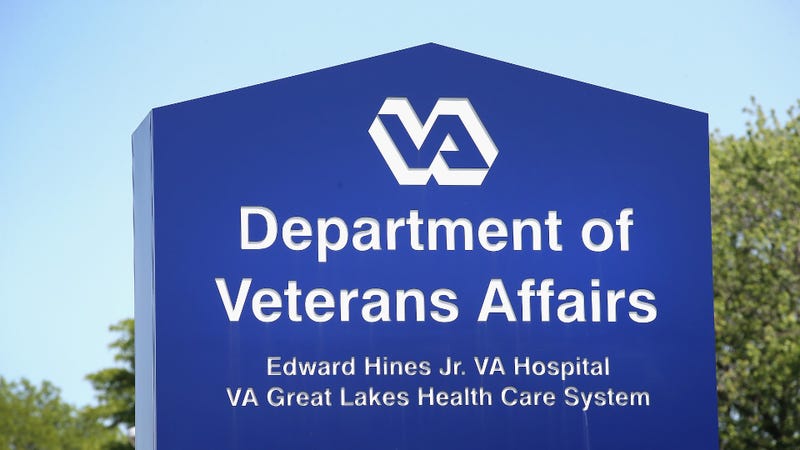
Future deployments of the Department of Veterans Affairs Electronic Health Record will be halted while VA prioritizes improvements at the five sites that currently use it.
The move, announced Friday, is part of a larger program reset during which the VA will fix issues with EHR that were identified during the recent“assess and address” period, continue to listen to veterans and clinicians about their experience with the EHR and redirect resources to focus on optimizing the EHR at the sites where it is currently in use, officials said.
“We’ve heard from veterans and VA clinicians that the new electronic health record is not meeting expectations – and we’re holding Oracle Cerner and ourselves accountable to get this right,” said VA Secretary Denis McDonough in a statement. “This reset period will allow us to focus on fixing what’s wrong, listening to those we serve, and laying the foundation for a modern electronic health record that delivers for veterans and clinicians.”
The modernized EHR is expected to replace the VA’s current 40-year-old Veterans Health Information Systems and Technology Architecture (VistA) to document and support all aspects of a veteran’s health care. However, its rollout has been plagued by problems that the VA noted in its recently released EHR Modernization Sprint Report. In contrast, the Department of Defense has the same system up and running in a majority of its medical facilities.
EHR is currently in use at the Spokane VA Health Care System, VA Walla Walla Health Care, Roseburg VA Health Care System, VA Southern Oregon Health Care and VA Central Ohio Health Care System.
During a hearing on March 15, the Senate Veterans Affairs Committee learned from VA that six events related to the EHR system led to four fatalities over several years.
Various pieces of legislation have been introduced in both the House and Senate to address problems with the rollout.
“For the past few years, we’ve tried to fix this plane while flying it – and that hasn’t delivered the results that veterans or our staff deserve,” said Dr. Neil Evans, Acting Program Executive Director, Electronic Health Record Modernization Integration Office in a statement.
On Thursday, Evans told reporters VA will pause any additional EHR rollouts until the system is functioning as it is expected to at its current sites.
“We’ve been listening to our frontline clinicians, specifically our frontline clinicians at the five sites that are live with the new Electronic Health Record, and it’s clear the EHR is not meeting their expectations,” Evans said. “Frankly, it’s not meeting my expectations either.”
The rollout had been planned to resume at a VA medical center in Saginaw, Michigan in June, but earlier this month officials said it was not ready to go live.
Additional deployments will not be scheduled until VA is confident that the new EHR is highly functioning at current sites and ready to deliver for veterans and VA clinicians at future sites, Evans said.
Readiness will be demonstrated by clear improvements in the clinician and veteran experience; sustained high performance and high reliability of the system itself; improved levels of productivity at the sites where the EHR is in use; and more.
“When those criteria are met, the reset period concludes. At that point in time, we’ll release a new deployment schedule and resume deployment activities,” Evans said. “This is, again, something we’re doing because we want to get this right.”
The reset follows an extended pause in deployments that began in July 2022, culminating in an “assess and address” period that identified a lengthy list of necessary fixes.
The announcement of the reset garnered broad bipartisan support on Capitol Hill.
“The best way to get out of a hole is to stop digging and we’re encouraged that VA and Oracle Center have finally realized that,” House Veterans Affairs Committee Chairman Rep. Mike Bost (R-Ill.) and Subcommittee on Technology Modernization Chairman Rep. Matt Rosendale (R-Mont.) said in a joint statement.
Chairman of the Senate Veterans Affairs Committee Sen. Jon Tester (D-Mont.) called the reset “a step in the right direction and shows that VA is serious about getting this program working for the veterans it serves” in a statement.
VA and Oracle Cerner are currently working toward an amended contract that will increase Oracle Cerner’s accountability to deliver a high-functioning, high-reliability, world-class EHR system. As part of the re-set, VA will work with Congress on resource requirements. VA estimates FY 2023 costs will be reduced by $400 million.
The only exception to the full-stop on deployment activities is the Captain James A. Lovell Federal Health Care Center in Chicago – which is the only fully-integrated VA and Department of Defense health care system – where the new EHR is scheduled to go live in March 2024.
For more information about VA’s overall EHR modernization effort, visit here.
Reach Julia LeDoux at Julia@connectingvets.com.




